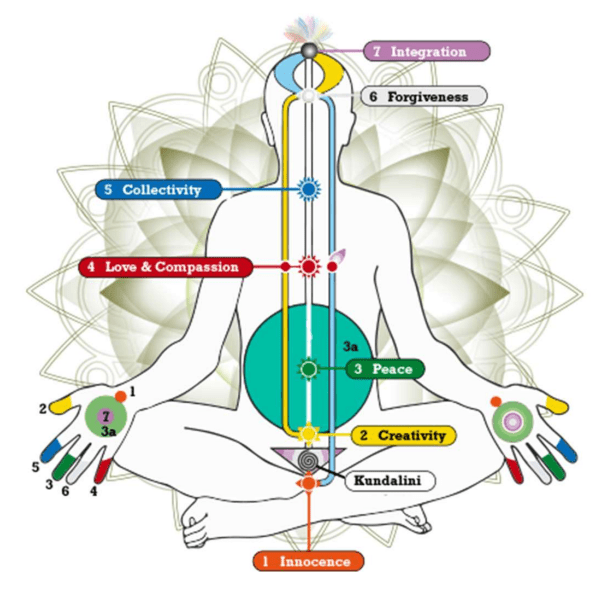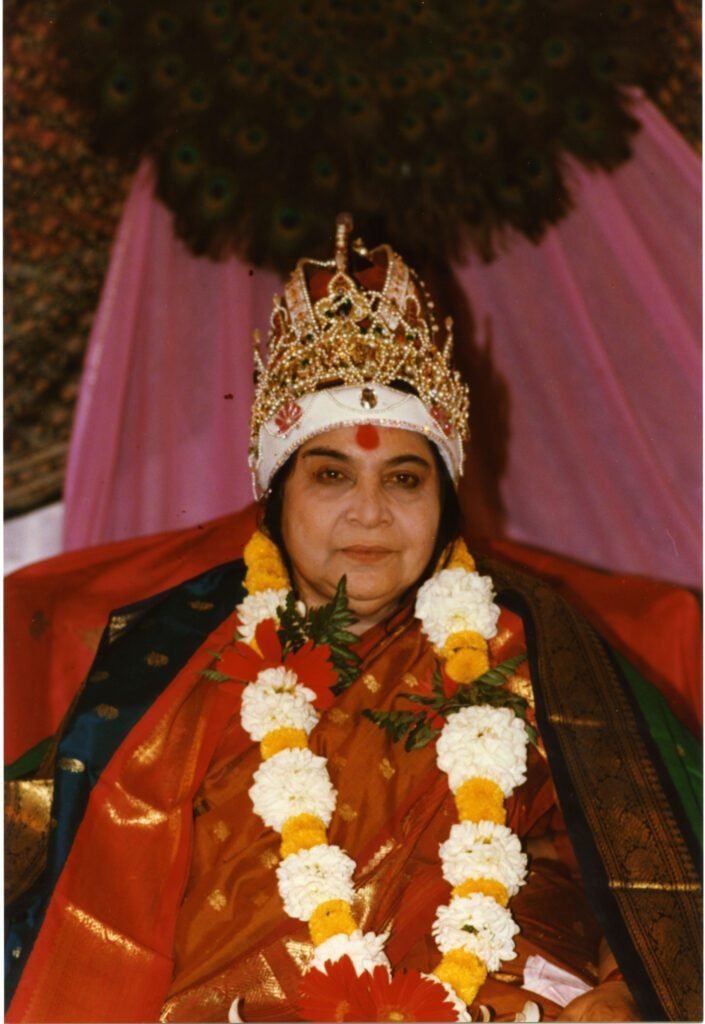
The word Kundalini is derived from a Sanskrit word ‘Kundal’ meaning coiled up It is the primordial dormant energy present in three-and-a-half, coils at the base of the spine in a triangular bone called the Sacrum .The Latin name ‘Os Sacrum’ suggests that it is a holy or sacred part of the body
The ancient Greeks were aware of this and therefore they called it the ‘Hieron Osteon’,noting that it was the last bone to be destroyed when the body is burnt, and also attributed supernatural powers to it.
Egyptians also held this bone to be very valuable and considered it the seat of special power.
In the West, Sacrum is symbolised by the sign of Aquarius and by the Holy Grail, container of the water of life.
KUNDALINI IS THE SEAT OF ABSOLUTE KNOWLEDGE
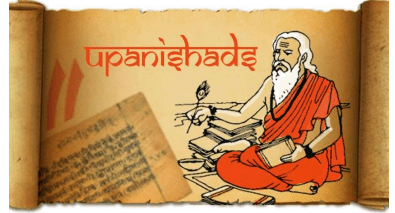
The Kundalini, which is to nourish the tree of life within us, is coiled up like a serpent and therefore it has been called, ‘The Serpent Power’. It has been described in great detail in the Upanishads .
Kundalini Yoga is supposed to be supreme in all the Yogas
Guru Vashistha asserted that Kundalini is the seat of absolute knowledge. The awareness of the presence of this primordial energy Kundalini within the human body was considered by the sages and saints to be the highest knowledge.
The Kundalini and Chakras have been vividly described in Vedic and Tantric texts
KUNDALINI SHAKTI RELIGIOUS REFERENCES
Adi Sankaracharya
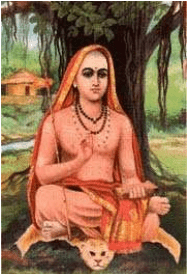
He lived in the 7th-8th century AD. and wrote
Having filled the pathway of the Nadis with the streaming shower of nectar flowing from the Lotus feet, having resumed thine own position from out of the resplendent Lunar regions and Thyself assuming the form of a serpent of three and a half coils, sleepest thou, in the hollow of Kula Kunda (Kula Kunda means the hollow of Mooladhara Sacrum bone)
Saundarya Lahari’: ‘Thou art residing in secrecy with Thy Lord (The spirit) in the thousand petalled Lotus, having pierced through the Earth situated in ‘Mooladhara’, the Water in Manipura, the Fire abiding in the
Svadhisthana, the Air in the Heart (‘Anahata’), the Ether above (Visshuddhi) and ‘Manas’ between the
eyebrows (‘Agnya’) and thus broken through the entire ‘Kula Path’
Sant Gyaneshwara
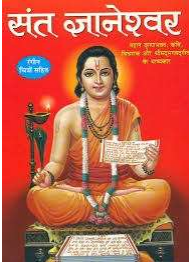
Gyaneshwara, another famous saint of Maharashtra born around 1275 AD, described Kundalini in the 6th chapter of his famous book ‘Gyaneshwari’. He wrote:
‘Kundalini is one of the greatest energies. The whole body of the seeker starts glowing because of the rising of the Kundalini. Because of that, unwanted impurities in the body disappear. The body of the seeker suddenly looks very proportionate and the eyes look bright and attractive and the eyeballs glow.’ – (Gyaneshwari, Chapter VI).
Guru Nanak Dev
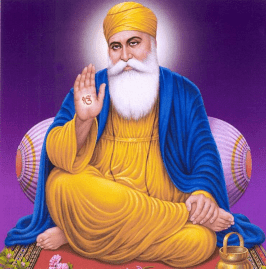
(Born in 1496 AD) has made references to Kundalini awakening as
mentioned below:
“A pure heart is the golden vessel to fill the Divine Nectar which is to be sucked from the ‘Dasham Dwar’ through the two channels ‘Ida’ and ‘Pingala’.” Dasham Dwar means Brahmarandhra. (Sahasrara Chakra).
‘God has made this human body a house with six Chakras and has established the light of spirit in it. Cross the ocean of Maya and meet the eternal God who does not come, who does not go, who neither takes birth nor dies. When your six Chakras meet in line, Surati (Kundalini) takes you beyond
distortions.’ (Sri Guru Granth).
Note that the seventh Chakra was not open at this time
In the Holy Koran
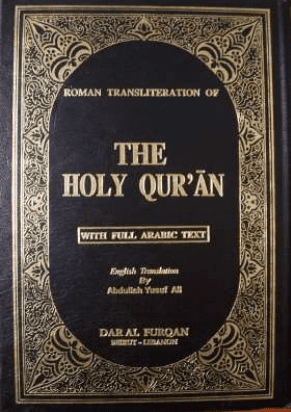
Prophet Mohammed Sahib talked of the day of resurrection when he says that the ‘hands will speak’.
That day, we set a seal on their mouths, but their hands will
speak to us, and their hands bear witness to all that they did.
When Kundalini awakening occurs, a flow of energy in the
form of cool vibrations from the hands is experienced, and
the various Chakras can be felt on parts of the hand and
fingers.
In the West
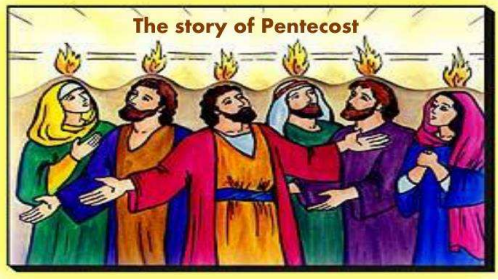
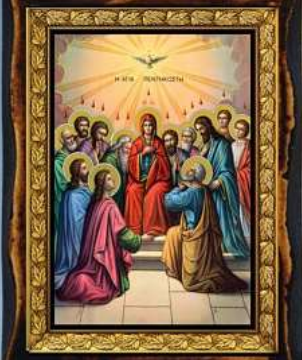
Christians called it a reflection of the Holy Ghost, and worshipped its manifestations as tongues of flames over the heads of apostles during the Pentecost reunion
MOSES
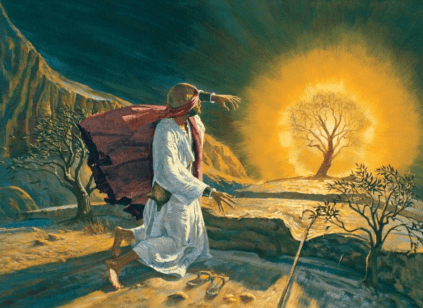
Moses saw it in the form of the burning bush.
During the exodus the Israelites lost faith and were smitten by fiery serpents so God told Moses-make thee a serpent, and set it upon a pole: and it shall come to pass, that everyone that is
bitten, when he looketh upon it, shall live. And
Moses made a serpent of brass, and put it on a
pole, and it came to pass, that if a fiery serpent
had bitten any man, when he beheld the serpent
of brass, he lived
An apt description of the healing qualities of the awakened Kundalini.
Some of the Israelites even began to worship this symbol, and the practice of worshipping the
brazen serpent on the pole as a god was either passed on, or was revived later.
Bronze and stone serpent artifacts have been found in excavations in Canaan, Gezer and
other parts of Israel!
lord Jesus
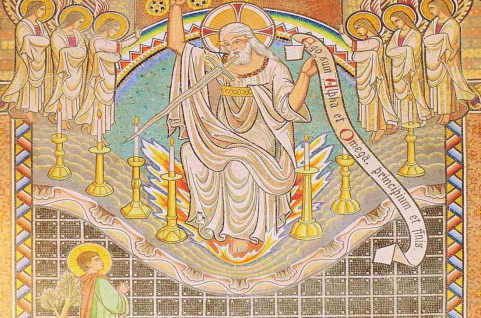
The mystery of the seven stars which thou sawest in my
right hand, and the seven golden candlesticks. The
seven stars are the angels of the churches: and the
seven candlesticks which thou sawest are the seven
churches. Revelation 1:20
He says unequivocally in the Gnostic Gospel of
Thomas and elsewhere, that ‘The Holy Spirit is My
Mother’. ‘The Kingdom of God is within you’ (Luke
17:21)
Tao
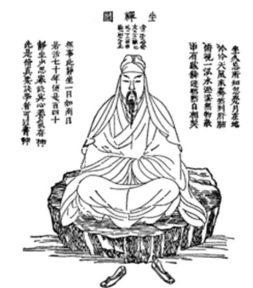
In the Tao Te Ching the primordial power is described as that of
a mother. Lao Tze described Kundalini as the “spirit of the
valley” (in which flows the Nadi of Sushumna).
The spirit of the valley never dies.
The spiritual instrument within us can be described as a
microcosm (miniature form of creation) which links us with the
Divine.
The ancient esoteric text “Scripture of the Golden Flower” also
spoke of the effects of the awakened kundalini energy.
Buddhist
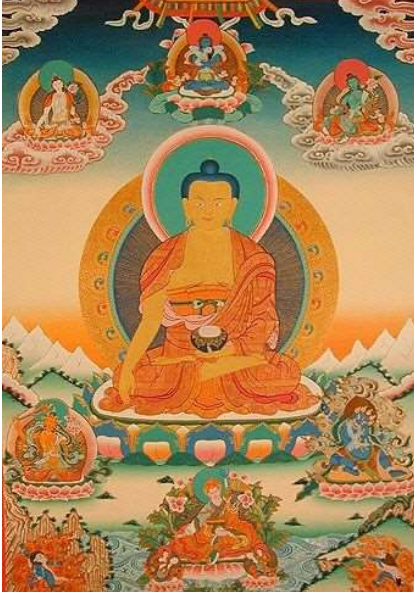
The Lord Buddha spoke of the “middle path” to achieve
nirvana.
He was actually describing the central channel (sushumna)
through which the Kundalinii ascends.
Later Buddhist masters considered that the existence of the
path of liberation within a human being was the greatest
secret.
They transmitted it to only a few deserving disciples.
OTHER CULTURES
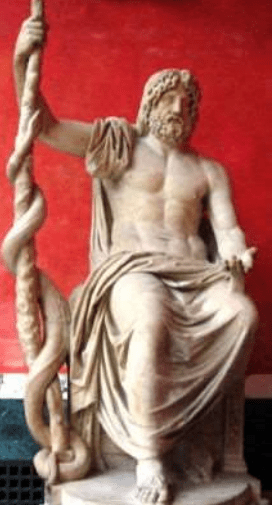
One also finds symbols of Kundalini in many different cultural legacies,
such as Mercury’s serpent which is an alchemical symbol for the
process of psychic metamorphosis.
The Gnostics understood the serpent to represent the spinal cord.
n ancient Greek and later, Roman mythology, we find Asclepius, the
god of healing. He is seen holding a staff which is entwined with a
serpent (or sometimes two). Why did the Greeks relate this symbol to
healing? The staff represents the central support of the human body or spinal cord (physical location of the sushumna).
In Rome Aesculapius came to be represented mercury who usually held a healing staff called the Caduceus. The one or two coiled snakes or serpents entwined around the staff, represent the kundalini which rises along the central subtle channel in a spiral double helical movement.
